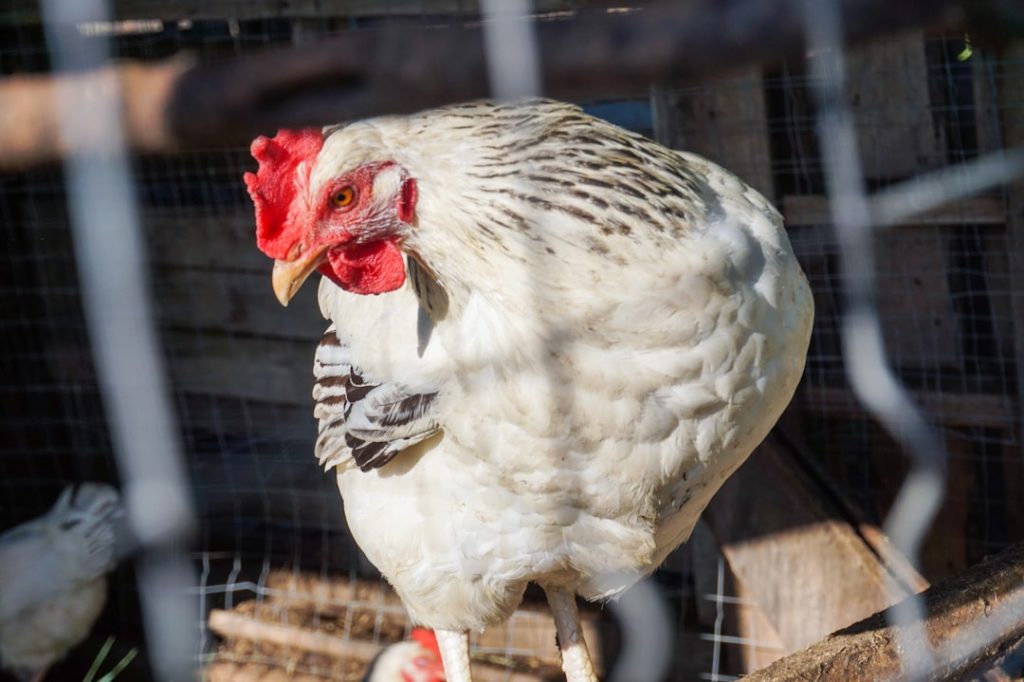Selecting an appropriate bantam chicken breed requires consideration of several factors. The primary consideration is the intended purpose for keeping bantams, whether for egg production or ornamental qualities. Breeds such as Sebright, Dutch, and Japanese bantams are known for their egg-laying capabilities, while Silkies and Frizzles are valued for their distinctive appearance and amiable nature.
Climate adaptation is another crucial factor in breed selection. Certain bantam breeds are more resilient to cold weather, like the Cochin bantam, making them suitable for northern regions. Conversely, breeds such as the Serama bantam are better adapted to hot and humid conditions.
Space availability is also an important consideration. Some bantam breeds are well-suited to confined spaces, while others require more extensive areas for foraging and roaming. By evaluating these factors, one can select a bantam breed that aligns with specific requirements and environmental conditions.
Table of Contents
- 1 Housing and Coop Requirements for Bantam Chickens
- 2 Feeding and Nutrition for Bantam Chickens
- 3 Health and Veterinary Care for Bantam Chickens
- 4 Handling and Socializing Bantam Chickens
- 5 Breeding and Reproduction of Bantam Chickens
- 6 Common Challenges and Solutions for Keeping Bantam Chickens
- 7 FAQs
- 7.1 What are bantam chickens?
- 7.2 What are the benefits of keeping bantam chickens in the UK?
- 7.3 What do bantam chickens eat?
- 7.4 What kind of housing do bantam chickens need in the UK?
- 7.5 What are the legal requirements for keeping bantam chickens in the UK?
- 7.6 What are some common health issues for bantam chickens in the UK?
Key Takeaways
- Consider the space available and your specific needs when choosing a breed of bantam chicken
- Provide a secure and well-ventilated coop with nesting boxes for bantam chickens
- Offer a balanced diet of commercial feed, grains, and fresh greens for optimal nutrition
- Regularly monitor for signs of illness and consult a veterinarian for proper care and treatment
- Handle bantam chickens gently and spend time socializing with them to build trust and reduce stress
- Understand the breeding process and provide appropriate conditions for successful reproduction
- Address common challenges such as predators, parasites, and behavioral issues with proactive measures and solutions
Housing and Coop Requirements for Bantam Chickens
Space and Comfort
First and foremost, you’ll want to ensure that your coop provides enough space for your bantam chickens to move around comfortably. As a general rule of thumb, each bantam chicken should have at least 2-3 square feet of space inside the coop, with an additional 4-5 square feet of outdoor space in the run. This will help prevent overcrowding and reduce the risk of aggression and pecking.
Ventilation and Protection
In addition to providing enough space, it’s important to ensure that your coop is well-ventilated and provides protection from the elements. Proper ventilation will help prevent moisture buildup and reduce the risk of respiratory issues, while a solid roof and walls will provide protection from wind, rain, and predators.
Coop Essentials
You’ll also want to make sure that your coop includes roosting bars for your bantam chickens to perch on at night, as well as nesting boxes for them to lay their eggs. By providing a comfortable and secure living environment for your bantam chickens, you can help ensure their health and well-being.
A Healthy and Happy Flock
By providing a comfortable and secure living environment for your bantam chickens, you can help ensure their health and well-being.
Feeding and Nutrition for Bantam Chickens

Feeding and nutrition are crucial aspects of caring for bantam chickens. A balanced diet is essential for maintaining their health and ensuring optimal egg production. When it comes to feeding bantam chickens, it’s important to provide them with a high-quality commercial feed specifically formulated for bantams.
This feed should contain all the essential nutrients, vitamins, and minerals that bantam chickens need to thrive. In addition to commercial feed, it’s also important to provide your bantam chickens with access to fresh water at all times. Clean water is essential for digestion, temperature regulation, and overall health.
You may also choose to supplement their diet with treats such as fruits, vegetables, mealworms, or kitchen scraps. However, it’s important to offer these treats in moderation to avoid nutritional imbalances. It’s also important to consider the specific nutritional needs of bantam chickens based on their age and purpose.
Chicks require a higher protein content in their diet to support growth and development, while laying hens benefit from calcium supplements to support strong eggshells. By paying attention to their nutritional needs and providing a balanced diet, you can help ensure that your bantam chickens stay healthy and productive. Feeding and nutrition are crucial aspects of caring for bantam chickens.
A balanced diet is essential for maintaining their health and ensuring optimal egg production. When it comes to feeding bantam chickens, it’s important to provide them with a high-quality commercial feed specifically formulated for bantams. This feed should contain all the essential nutrients, vitamins, and minerals that bantam chickens need to thrive.
In addition to commercial feed, it’s also important to provide your bantam chickens with access to fresh water at all times. Clean water is essential for digestion, temperature regulation, and overall health. You may also choose to supplement their diet with treats such as fruits, vegetables, mealworms, or kitchen scraps.
However, it’s important to offer these treats in moderation to avoid nutritional imbalances. It’s also important to consider the specific nutritional needs of bantam chickens based on their age and purpose. Chicks require a higher protein content in their diet to support growth and development, while laying hens benefit from calcium supplements to support strong eggshells.
By paying attention to their nutritional needs and providing a balanced diet, you can help ensure that your bantam chickens stay healthy and productive.
Health and Veterinary Care for Bantam Chickens
Maintaining the health of your bantam chickens is essential for their overall well-being and productivity. Regular health checks are important for identifying any potential issues early on. It’s important to monitor your chickens’ behavior, appetite, droppings, and overall appearance on a daily basis.
Any changes in these areas could be indicative of an underlying health problem. In addition to regular health checks, it’s important to provide preventative care for your bantam chickens. This includes vaccinations against common poultry diseases such as Marek’s disease and Newcastle disease.
Additionally, regular deworming can help prevent parasitic infestations that can negatively impact your chickens’ health. If you notice any signs of illness or injury in your bantam chickens, it’s important to seek veterinary care as soon as possible. A qualified poultry veterinarian can provide a proper diagnosis and treatment plan tailored to your chickens’ specific needs.
By staying proactive about your bantam chickens’ health and seeking veterinary care when needed, you can help ensure that they lead long and healthy lives. Maintaining the health of your bantam chickens is essential for their overall well-being and productivity. Regular health checks are important for identifying any potential issues early on.
It’s important to monitor your chickens’ behavior, appetite, droppings, and overall appearance on a daily basis. Any changes in these areas could be indicative of an underlying health problem. In addition to regular health checks, it’s important to provide preventative care for your bantam chickens.
This includes vaccinations against common poultry diseases such as Marek’s disease and Newcastle disease. Additionally, regular deworming can help prevent parasitic infestations that can negatively impact your chickens’ health. If you notice any signs of illness or injury in your bantam chickens, it’s important to seek veterinary care as soon as possible.
A qualified poultry veterinarian can provide a proper diagnosis and treatment plan tailored to your chickens’ specific needs. By staying proactive about your bantam chickens’ health and seeking veterinary care when needed, you can help ensure that they lead long and healthy lives.
Handling and socializing your bantam chickens is an important aspect of their care that can have a significant impact on their behavior and well-being. When handling your bantams, it’s important to do so gently and calmly to avoid causing them stress or injury. Start by spending time near them without making sudden movements or loud noises so they can become accustomed to your presence.
Once they are comfortable with your presence, you can begin gently picking them up and holding them close to you. This will help them become more accustomed to human interaction and build trust with you over time. It’s important to handle them regularly from a young age so they become accustomed to human contact.
Socializing your bantams with other chickens is also important for their well-being. Chickens are social animals that thrive in the company of others. Providing them with opportunities for social interaction within their flock can help reduce stress and promote positive behavior.
By handling and socializing your bantams regularly, you can help ensure that they remain calm, friendly, and well-adjusted. Handling and socializing your bantam chickens is an important aspect of their care that can have a significant impact on their behavior and well-being. When handling your bantams, it’s important to do so gently and calmly to avoid causing them stress or injury.
Start by spending time near them without making sudden movements or loud noises so they can become accustomed to your presence. Once they are comfortable with your presence, you can begin gently picking them up and holding them close to you. This will help them become more accustomed to human interaction and build trust with you over time.
It’s important to handle them regularly from a young age so they become accustomed to human contact. Socializing your bantams with other chickens is also important for their well-being. Chickens are social animals that thrive in the company of others.
Providing them with opportunities for social interaction within their flock can help reduce stress and promote positive behavior. By handling and socializing your bantams regularly, you can help ensure that they remain calm, friendly, and well-adjusted.
Breeding and Reproduction of Bantam Chickens

Health and Genetic Considerations
Before breeding your bantams, it’s essential to ensure that both the hen and rooster are healthy and free from any genetic defects or diseases that could be passed on to their offspring.
Providing a Suitable Nesting Area
When breeding bantams, it’s crucial to provide them with a suitable nesting area where they can lay their eggs undisturbed. This area should be quiet, dark, and comfortable, making the hen feel safe laying her eggs there.
Collecting and Incubating Eggs
Once the eggs are laid, they should be collected daily if possible, and stored in a cool place until they are ready for incubation or consumption. If you plan on hatching the eggs naturally using a broody hen or artificially using an incubator, it’s vital to provide the necessary conditions for successful hatching, such as proper temperature and humidity levels.
Common Challenges and Solutions for Keeping Bantam Chickens
Keeping bantam chickens comes with its own set of challenges that require careful attention and problem-solving skills. One common challenge is predator attacks which can pose a serious threat to the safety of your bantams. To protect them from predators such as foxes, raccoons, or birds of prey, it’s important to secure their coop with sturdy fencing or wire mesh that extends underground as well as above ground.
Another common challenge when keeping bantams is maintaining good hygiene within their living environment. Regular cleaning of their coop including removing droppings from roosting bars and nesting boxes is essential for preventing disease outbreaks. Additionally, integrating new birds into an existing flock can be challenging as established birds may exhibit aggressive behavior towards newcomers.
To minimize conflict during integration, it’s best to introduce new birds gradually by keeping them separated but within sight of each other until they become accustomed to one another. Keeping bantam chickens comes with its own set of challenges that require careful attention and problem-solving skills. One common challenge is predator attacks which can pose a serious threat to the safety of your bantams.
To protect them from predators such as fox
If you’re interested in keeping bantam chickens in the UK, you may also want to check out this article on how to build a chicken coop trampoline from Poultry Wizard. It offers creative and practical tips for creating a safe and enjoyable environment for your chickens.
FAQs
What are bantam chickens?
Bantam chickens are small breeds of chickens, typically one-fourth to one-fifth the size of standard chicken breeds. They are known for their ornamental and decorative qualities, as well as their ability to lay small eggs.
What are the benefits of keeping bantam chickens in the UK?
Keeping bantam chickens in the UK can provide a sustainable source of fresh eggs, pest control in the garden, and companionship. They are also relatively low maintenance and can be kept in smaller spaces compared to standard chicken breeds.
What do bantam chickens eat?
Bantam chickens eat a diet consisting of commercial chicken feed, grains, seeds, fruits, vegetables, and insects. It is important to provide them with a balanced diet to ensure their health and egg production.
What kind of housing do bantam chickens need in the UK?
Bantam chickens in the UK require a secure and predator-proof coop with adequate ventilation, nesting boxes, and perches. They also need access to a run or outdoor space for exercise and foraging.
What are the legal requirements for keeping bantam chickens in the UK?
In the UK, there are regulations and guidelines for keeping chickens, including bantams. These may include registration, biosecurity measures, and compliance with local zoning and animal welfare laws. It is important to check with local authorities before keeping bantam chickens.
What are some common health issues for bantam chickens in the UK?
Common health issues for bantam chickens in the UK include parasites, respiratory infections, and egg-related problems. Regular health checks, proper nutrition, and good hygiene practices can help prevent these issues. It is also important to consult a veterinarian if any health concerns arise.
Meet Walter, the feathered-friend fanatic of Florida! Nestled in the sunshine state, Walter struts through life with his feathered companions, clucking his way to happiness. With a coop that’s fancier than a five-star hotel, he’s the Don Juan of the chicken world. When he’s not teaching his hens to do the cha-cha, you’ll find him in a heated debate with his prized rooster, Sir Clucks-a-Lot. Walter’s poultry passion is no yolk; he’s the sunny-side-up guy you never knew you needed in your flock of friends!







